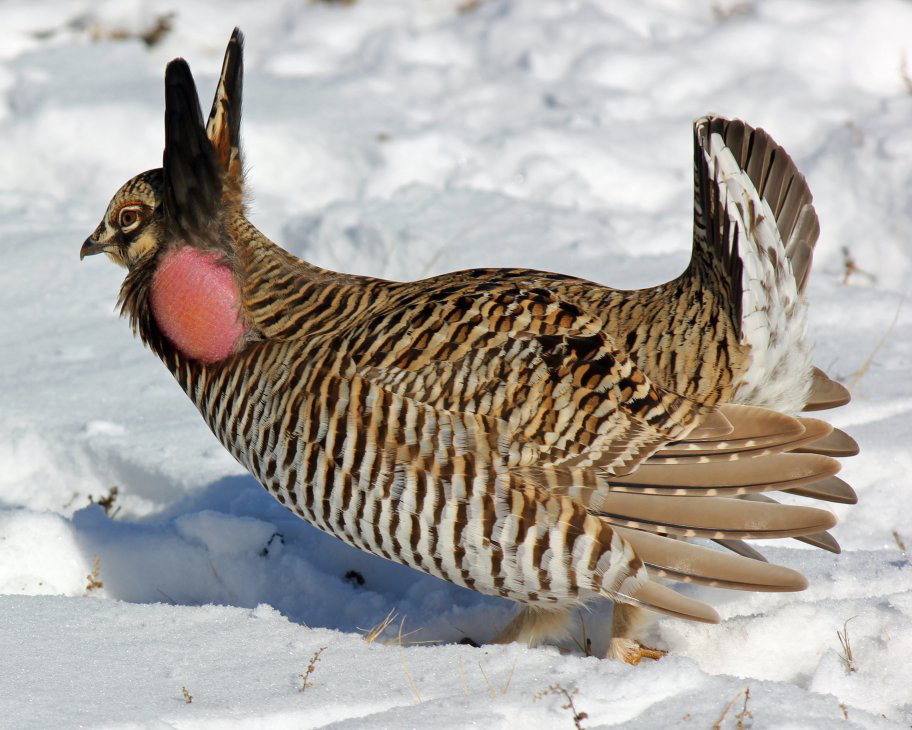
By Bethany Johnston, Nebraska Extension Educator
A field day near Burwell on June 24 will show how ranches can manage grazing to benefit not only cow herds, but also other grazing animals and wildlife that depend on grassland habitats.
The Grazing for Wildlife Field Day at the Calamus Outfitters near Burwell will provide hands-on demonstrations of several key ideas:
• What is healthy habitat for upland pastures, wetlands, and shelterbelts;
• How healthy and diverse grasslands provide healthy and diverse habitat for wildlife;
• How grazing can impact and create prairie chicken nesting and chick raising sites.
This program is organized by Nebraska Extension and is free of charge, thanks to support from the World Wildlife Fund. The program is intended to help ranchers remain as stewards of their ranches, keeping grasslands in grass.
The program will appeal to ranchers, land managers, and organizations helping ranchers, such as USDA Natural Resources Conservation Service (NRCS), natural resources districts (NRDs), and habitat groups such as Pheasants Forever, according to Bethany Johnson, Extension Educator at Central Sandhills Extension Office.
Pre-registration is required one week prior for a meal count and tour. Audience size is limited. To make a reservation call the Central Sandhills Extension Office at 308-645-2267, or email Bethany Johnston at bjohnston3@unl.edu.
The Switzer family, which operates Calamus Outfitters, added birding, hunting, lodging, and water recreation to their ranch to bring back the next generation to the ranch. They will explain what they did, what they learned, and what they wish they would have known. Several other expert speakers will explain what ranchers can do to enhance habitat. The field day will be hands-on and will include outdoor Jeep tours of upland prairies, wetlands, and shelterbelts.
Calamus Outfitters is located 16 miles northwest of Burwell on Highway 96, or 12 miles north of Taylor on Highway 183, then 4 miles East on Highway 96.
Registration begins at 10 a.m. and the day will conclude at 4 p.m. Topics include:
GRAZING EFFECTS ON PRAIRIE CHICKEN HABITAT: Grassland bird habitat is affected by grass height, cover density of the vegetation, and plant type. Walt Schacht, UNL Professor of Rangeland Science, is collaborating with Larkin Powell, UNL Professor of Wildlife, and graduate students to study the effects of livestock grazing on habitat and behavior of greater prairie chickens.
Nebraska has one of the largest populations of greater prairie chickens in the country. Identifying habitat requirements for leks (booming grounds), nesting, and brood rearing is important for increasing prairie chicken populations. Schacht will draw on research at the UNL Barta Brothers Ranch and surrounding area on grazing and habitat of prairie chicken and other upland birds to discuss how grazing and birds can work together.
Did you know prairie chickens begin nesting as early as March? Powell will discuss the life of the prairie chicken, from egg to adults.
WILDLIFE ENTERPRISES ON THE RANCH: Bruce and Sue Ann Switzer have experience establishing multiple enterprises on their ranch. The Switzers wanted to bring their children back to the ranch, and starting the additional enterprises (birding, lodging, tanking and tubing), which brought son Adam’s and daughter Sarah’s families back home. Jeep tours, hunting, and birding are part of everyday life on the Switzer Ranch. The Switzers will give their insight on starting these enterprises.
COMMON QUESTIONS ABOUT INSURANCE: If wildlife enterprises are added to a ranch, what are some insurance uncertainties? Extension educators will be on hand to cover the basics.
SHELTERBELTS AND HABITAT: U.S. Forest Service personnel will talk about enhancing shelterbelts (for wind control) to provide food and shelter for wildlife.
Maintaining diversity of plants is key for healthy wetlands. Find out how haying and grazing can enhance wetland diversity and create a better habitat for wildlife. Learn how wetland rehabilitation could bring life back into lowlands.
Space is limited, so pre-register by June 17th for the meal count and tour. Visit http://centralsandhills.unl.edu/GrazeForWildlife.